Emergency Dentist – Webster, MA
Urgent Dental Care When You Need It Most
Dental emergencies are not as common as other types of emergencies, which is just one of the reasons why patients often don’t know what to do when they occur. Unfortunately, many also aren’t aware of what constitutes a dental emergency. Here at Webster Lake Dental, we want to help you get your emergency treated as soon as possible, whether it’s a severe toothache or a broken or knocked-out tooth. We’re also prepared to answer the call if you have an oral infection caused by tooth decay or experience a bad fall while playing sports. Contact our team if you’re in need of emergency dentistry in Webster, MA!
Why Choose Webster Lake Dental for Emergency Dental Care?
- Evening Appointment Hours Available
- Open at 8 AM on Business Days
- Wide Variety of Services Under One Roof
What to Do in a Dental Emergency

Time is of the essence when you sustain a dental emergency—quick thinking and leaping into action will ensure that your smile isn’t in immediate danger. Here are three steps you can follow:
- Call Us – If you’re dealing with an urgent situation involving your smile, calling us is the first step towards receiving pain relief and the proper care. We proudly offer same-day appointments, as well as availability during the evenings. We can also provide you with instructions over the phone on how to alleviate your discomfort while you’re waiting to attend your appointment.
- Attend Your Visit – Once you’re seated in our office, we’ll quickly perform an emergency exam and take X-rays if necessary to determine the source of the issue and the best appropriate response.
- Receive Urgent Care – You can rest assured that your comfort is our top priority; we’ll quickly work to address the issue, relieve your pain, and get your smile back to looking and functioning as normal. Don’t leave things up to chance—we’re here to help!
The Most Common Dental Emergencies
No matter what type of emergency situation you’re dealing with, our team is ready to help! Since no two dental emergencies are exactly the same, it’s important for you to quickly call us and describe your symptoms so that we can provide you with guidance while you’re waiting to come in for treatment; once you’re here, we’ll determine the most appropriate course of action. Here are some tips you can use to keep yourself at ease in the meantime:
Understanding the Cost of Emergency Dentistry

The cost of your care is always going to come down to your unique dental needs, which is why scheduling a consultation with us is so important! As soon as you notice that something is wrong with your smile, contact us at once so that we can get you in as soon as possible – even if it’s that very same day. Once you’re here, our team will do all we can to address your unique needs while helping you find relief from your pain. We’ll also aim to keep the costs as low as possible for you while still fully addressing your oral health needs.
Every Dental Emergency Is Different
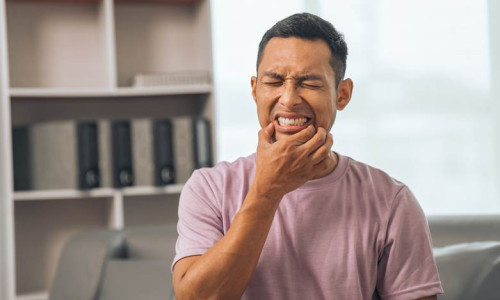
Every dental injury is fairly different – everything ranging from throbbing pain to a knocked-out tooth will require professional treatment. However, the ways in which all of these issues are treated can differ just as much, as can their respective price points. For example, a throbbing toothache that requires root canal treatment is going to be much cheaper than having to extract and fully replace a compromised tooth. In all cases, we will sit with you and review our findings before walking you through your recommended treatment options and their associated costs.
Does Dental Insurance Cover Dental Emergencies?

Dental insurance plans vary greatly from patient to patient, but the majority of plans include some form of coverage for diagnostic care – which is an integral part of any dental visit, including emergency ones. Plus, it’s possible that your benefits might also cover some of the cost of major restorative procedures, like dental crowns since they have oral health benefits. This can lower your total out-of-pocket cost. Some plans also include coverage for at least one annual emergency examination. In any case, our team is more than happy to answer any questions you may have about your specific plan so that you can worry less about finances and focus on mending your smile.
Other Options for Making Dental Emergencies Affordable
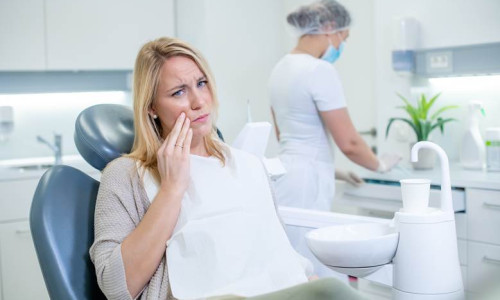
The last thing our team wants is for the cost of care to stand between you and the treatment your smile needs. That’s why in addition to being an insurance-friendly practice, we also work with CareCredit, a third-party financer that offers a variety of little-to-no-interest payment plans to qualifying patients. Needless to say, this is a stress-free way of addressing the financial part of your treatment!
Taking Care of Your Smile Can Save You Money
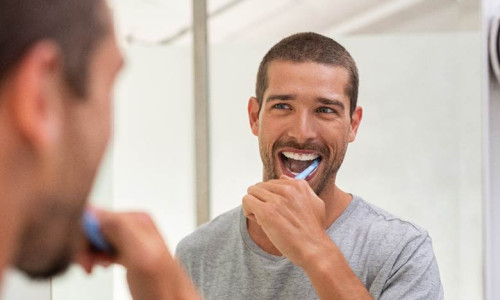
The truth of the matter is, you can save a great deal of money on dental care by simply avoiding the need for emergency dentistry, and believe it or not, this doesn’t take a huge amount of preparation or knowledge. It’s mainly about maintaining your smile’s wellness – a healthy smile is far less likely to encounter serious dental injuries, so don’t stop brushing and flossing at home. Likewise, maintain your biannual dental checkups and cleanings; these visits are paramount in preventing and identifying serious issues that can cost you time and money down the road.
Keys to Preventing Dental Emergencies
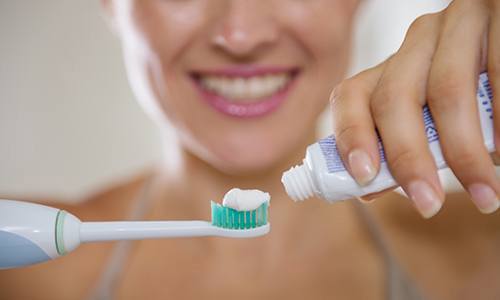
Rest assured, our Webster dental team is here to help if you need us – whether it’s for a minor toothache or a completely knocked-out tooth. That said, we also want to give you the tools you need to prevent common dental injuries. With this in mind, keep reading to learn five keys to keeping your smile happy and healthy!
Visit Your Dentist Twice a Year
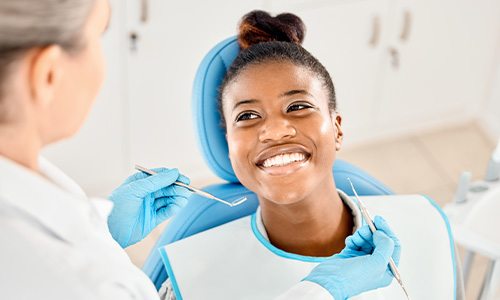
One of the best ways to protect your smile from harm is by coming to our dental office twice a year. During the exam, we will look for oral cancer, tooth decay, gum disease, and other common problems, ensuring that they are detected and treated in the early stages. During the cleaning, we will remove plaque and tartar from the spots in your mouth that you’ve overlooked. We will also share any recommendations we have for you at this time, like which toothbrush you should use at home.
Maintain Good Oral Hygiene At Home

A solid oral hygiene regimen is an important cornerstone of preventing dental emergencies. So, if you aren’t already, do your best to brush for two minutes each morning and evening, floss each night before bed, and rinse with mouthwash consistently. It’s also important to use the proper tools and techniques. If you aren’t sure which products to use or the best way to floss, let us know! A member of our Webster dental team would be happy to help.
Choose Nutrient-Dense Foods Over Sugary Ones

Although delicious, foods like caramel candies, peanut brittle, and ice cream can wreak havoc on your oral health. That’s why we encourage patients to watch their intake of added sugar. Instead, focus on adding foods to your diet that benefit your teeth and gums, like fresh fruits and vegetables. The goal is to give your body the nutrients it needs to keep your jawbone strong, your gums healthy, and your teeth decay-free.
Wear a Mouthguard During Sports

Riding your bike, playing football, and lifting weights are all great ways to stay active. Unfortunately, many patients don’t take the right precautions, which leads to serious dental damage, like a knocked-out tooth. That’s why we encourage our patients to take preventive measures where they can. That starts with getting a mouthguard if you play sports (even non-contact ones) and extends to wearing a nightguard if you clench/grind your teeth at night.
Break Bad Dental Habits

Do you bite your nails, chew on the back of your pen while you’re working, or use your teeth as tools to open things? Habits like these may seem harmless, but they can actually weaken the teeth over time and eventually lead to an emergency. So, do your best to break bad dental habits like these altogether!
Dental Emergency FAQs

From proper prevention to the cost, the above information is designed to make handling a dental emergency in Webster as stress-free and seamless as possible. Nevertheless, it’s completely natural to still have a few questions on your mind. Don’t worry – we’re here to make finding the answers easy too! While we’d be happy to answer your questions over the phone, we’ve also responded to a few of the most frequently asked ones here.
How should I sleep with tooth pain?
Sleeping with tooth pain can be difficult, if not impossible. Luckily, there are a few tips you can use to help get a restful night’s sleep. First, make sure to avoid acidic, crunchy, and cold foods and beverages at dinner since these can exacerbate any sensitivity you’re experiencing. Next, place a cold compress against the outside of your cheek for 10 minutes at a time. If you’re still uncomfortable, try taking an over-the-counter pain reliever. Lastly, prop your head up with multiple pillows before going to bed. This will prevent blood from rushing to your head throughout the night. Remember, these are just short-term solutions; priority number one should be to schedule an appointment with our team as soon as possible.
Do I need to visit for minor chips in my teeth?
Minor chips may not seem like a big deal, especially if the tooth and surrounding tissue aren’t sensitive. However, the tooth in question is likely vulnerable to further damage. Furthermore, a sharp or jagged edge can lead to cuts to your gums, lips, and the inside of your cheeks! For this reason, it’s important to get in touch with our emergency dentist in Webster. Not only will we be able to examine the tooth, but we will also share the next best steps for restoring its look and function.
Can superglue be used to repair broken dentures?
If your dentures split in two or shatter into multiple pieces, do NOT attempt to remedy the situation with super glue. This powerful binding agent contains toxic materials that are not safe to ingest. Instead, contact our team right away. Once we get an appointment for you on the calendar, we can assess the damage and determine the next best steps.
Is my tooth pain from an infection?
Are you struggling with a sore or throbbing toothache? Do your gums look red or swollen? Have you noticed other uncommon symptoms, like chronic bad breath or a bitter taste in your mouth? Then it’s possible! With that being said, the only way to know for certain is by scheduling an appointment with our skilled dentist. From there, they will determine the root of the issue with high-quality X-rays and a thorough dental exam. If it is due to an infection, then the appropriate treatment will be administered to restore the look and function of your smile.
What does chronic bad breath mean?
If you recently ate a pungent-tasting food, like an onion, then the associated bad breath is nothing to be worried about. On the other hand, if you are experiencing consistent bad breath that can’t be addressed by brushing your teeth or chewing on sugar-free gum, then it could be the result of a dental problem, such as gum disease. Therefore, if your bad breath doesn’t go away after a few days, get in touch with our team for a dental checkup.
How Can I Prevent Dental Emergencies?
Preventing dental emergencies starts with maintaining good oral hygiene and keeping up with your routine checkups and cleanings at our Webster office. Brush your teeth twice a day with fluoride toothpaste, floss daily, and schedule visits with us twice a year so we can detect problems early. You should also avoid using your teeth as tools to open packaging or hold objects, and never bite directly into hard, non-food items. Finally, always wear an athletic mouthguard whenever you participate in contact sports.
Will a Toothache Go Away on Its Own?
A toothache rarely goes away on its own and often signals an underlying dental issue that warrants professional treatment. While mild discomfort may come and go, persistent or severe pain can indicate problems like advanced decay, infection, or gum disease. Ignoring the issue will likely lead to it worsening, meaning serious complications or even total tooth loss. Over-the-counter pain relievers might grant you temporary relief, but they won’t treat the cause of the issue. If you’ve been dealing with persistent tooth pain, don’t delay in contacting our office for help!
Does Dental Insurance Cover the Cost of Emergency Dentistry?
In many cases, dental insurance does cover at least part of the cost of emergency dental care, but coverage varies depending on your specific plan. Many insurance plans have built-in provisions that cover some of the cost of specific diagnostic treatments, including emergency exams and X-rays, as well as treatments designed to relieve pain and prevent further dental damage. However, it’s always going to be in your best interest to remain familiar with your plan’s coverage details.
What Should I Do If I Knock Out a Tooth?
If you knock out a tooth, you need to act quickly—time is of the essence in order to save it! Locate the tooth and pick it up by its crown (chewing surface); never handle the delicate root. You can gently rinse it with cool water if it’s dirty, but do not scrub it. You can also try to place the tooth back into its socket, holding it in place by gently biting down on a clean piece of gauze or cloth. If this isn’t possible, keep the tooth moist in a glass of milk or your own saliva. Then, contact us immediately for assistance; getting professional care within an hour of the tooth coming out offers the best chance of it being saved.
I Need a Checkup & Cleaning I Have a Broken Tooth or Cavity I am Missing One or More Teeth I Want to Enhance My Smile I am Worried About Bleeding Gums View All Our Services

